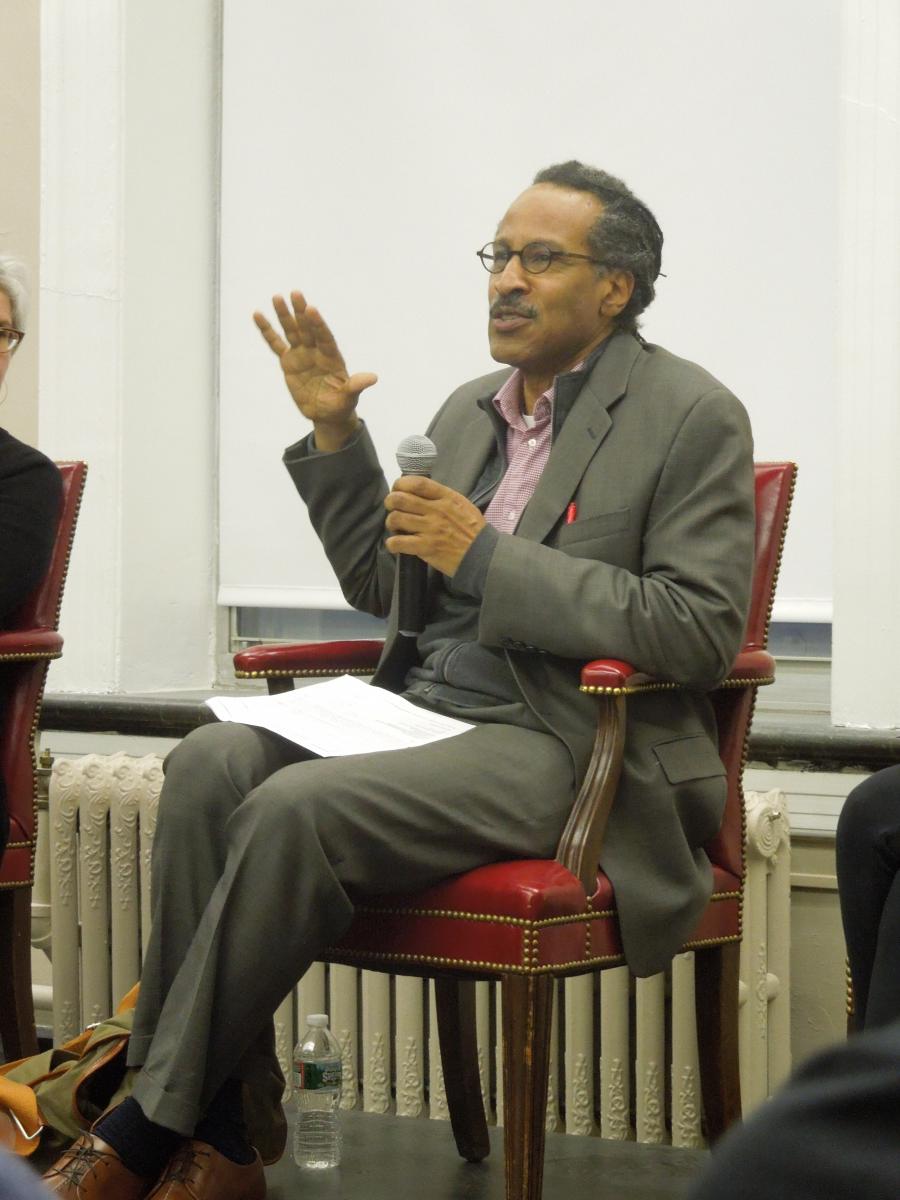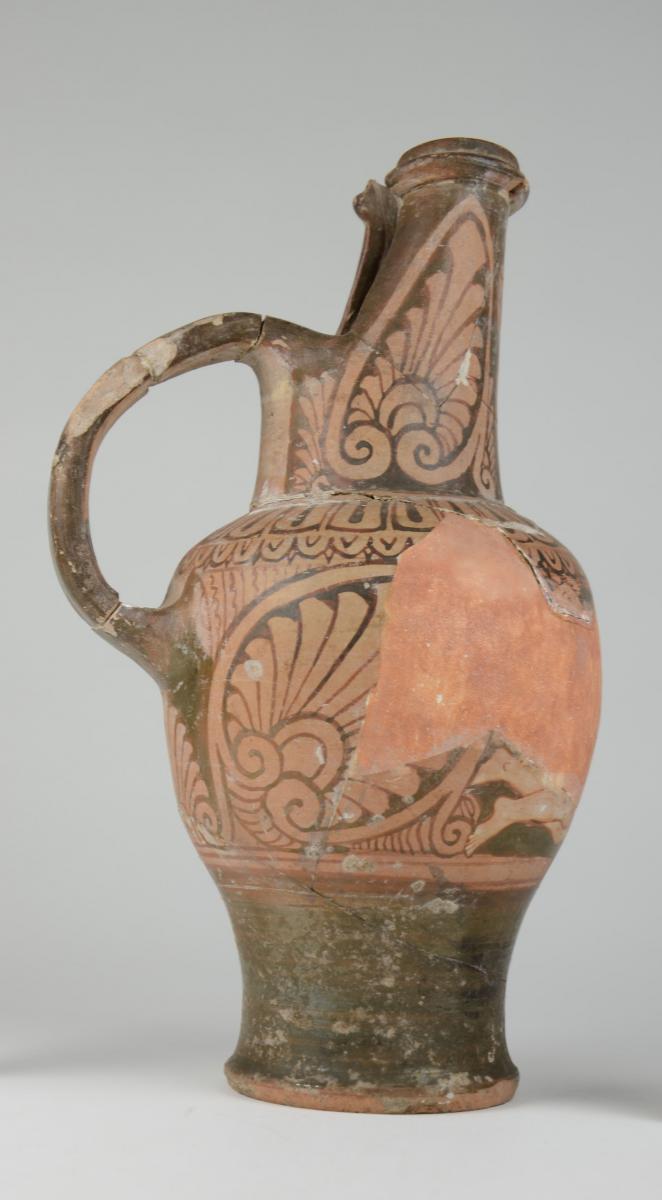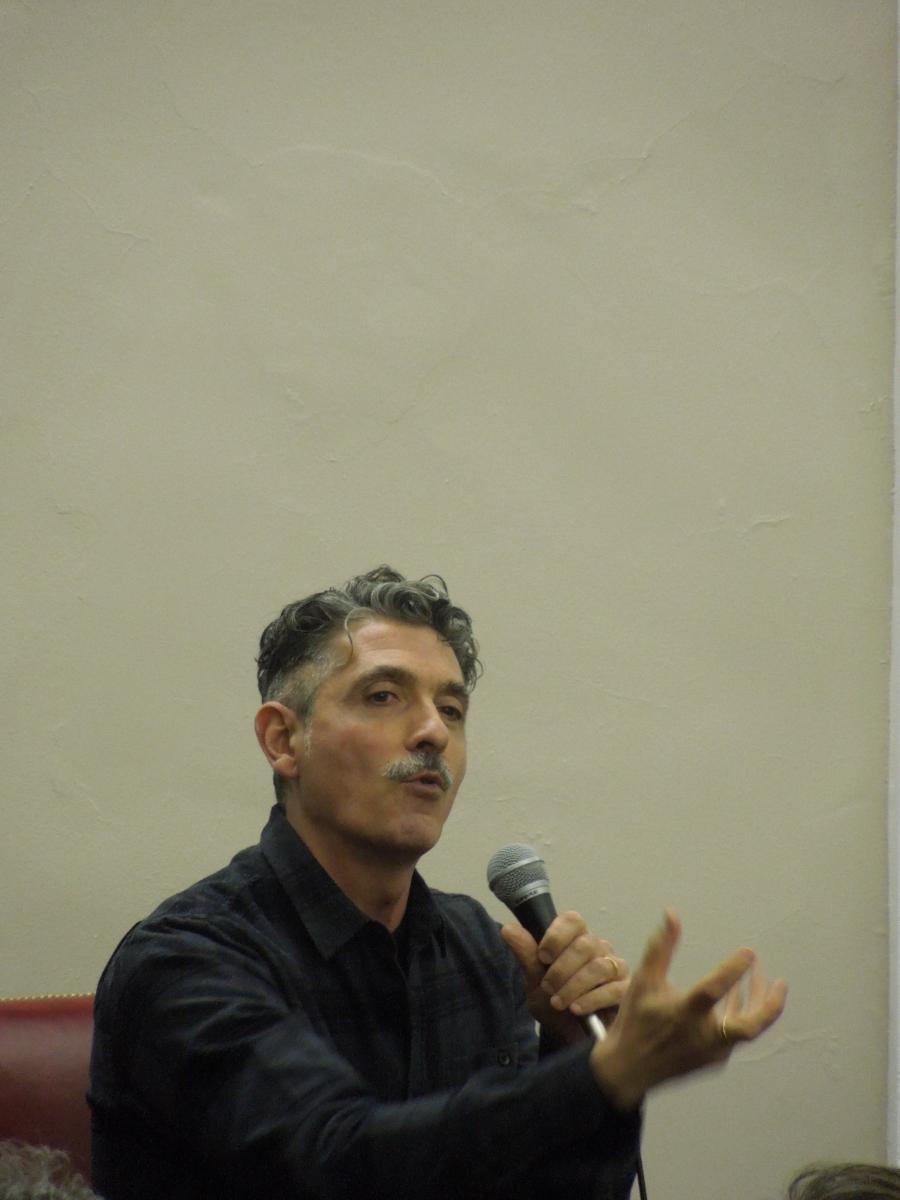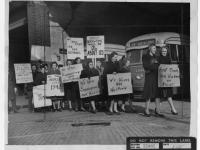On April 8, 2015, the Historical Society of Pennsylvania (HSP) had the pleasure of hosting a lively conversation as part of the event, Voicing the Absent: Crafting History.
The inaugural program in HSP’s two-year “An Artist Embedded” project, Voicing the Absent brought together playwrights, historians, filmmakers, and the public to explore the intersections of history and fiction, fact and truth.
Obie award-winning playwright Ain Gordon was on-hand, along with filmmaker Louis Messiah, and historian/novelist Jane Kamensky. Each brought a different perspective for interacting with the past, as well as working with different formats to present history and fiction: dramatic performances, written histories, and documentary films.
Where do their perspectives coincide? Conflict? Are their processes substantially different? How?

Filmmaker Louis Massiah
The evening’s conversation took as its jumping off point the simple fact that the historical record is incomplete. Put simply, both the artist and historian must make the same sorts of choices – to take “liberty” with their subjects – because all of the “facts” are impossible to cull. “The closer you get to the truth,” filmmaker Messiah pointed out, “the more power you have.”
Kamensky, a professor of history at Brown University who recently co-authored a novel, discussed her recent excursion into the world of writing historical fiction, and how she felt “completely free to lie,” liberated by gaps in the historical record.

Historian Jane Kamensky
Playwright Ain Gordon, in response to a question posed by a member from the audience, observed that our historical perspectives are, by their very nature, ill-informed and incomplete.
“History cannot be the story of everything that happened, it’s not possible,” said Gordon. “Some things made it, and some things didn’t.”

To help the audience visualize his view of the historical record, Gordon compared the construction of history to the conservation of ancient pottery. It is exceptionally rare to recover an intact piece. Many, like the vase featured in the image above, are missing considerable chunks. The archaeologist, like the artist and historian, is often forced to make interpretive choices, to “fill in” the gaps in an effort to re-create the whole.
History, Gordon reasoned, works a lot like these vases – there are pieces broken and missing, and while one can presuppose what those fragments may have looked like long ago, the record still stands in its imperfection and incompleteness.

Playwright Ain Gordon
Questions from the audience covered a wide range, including everything from the possible perils of writing historical fiction and how to make history relevant to elementary-age schoolchildren, to the influence of popular entertainment on public memory.
The next program in the series on Wednesday, May 13, sees playwright Ain Gordon return, along with historians Erica Dunbar & Judith Giesberg, to discuss the experiences of African American women of the early 1800s who worked to end slavery. The evening will begin with a dramatic reading by actress Melanye Finister from Gordon’s previous play If She Stood..., meant as a jumping off point for discussion of these pioneering radicals whose voices and stories are often muted and overlooked.


